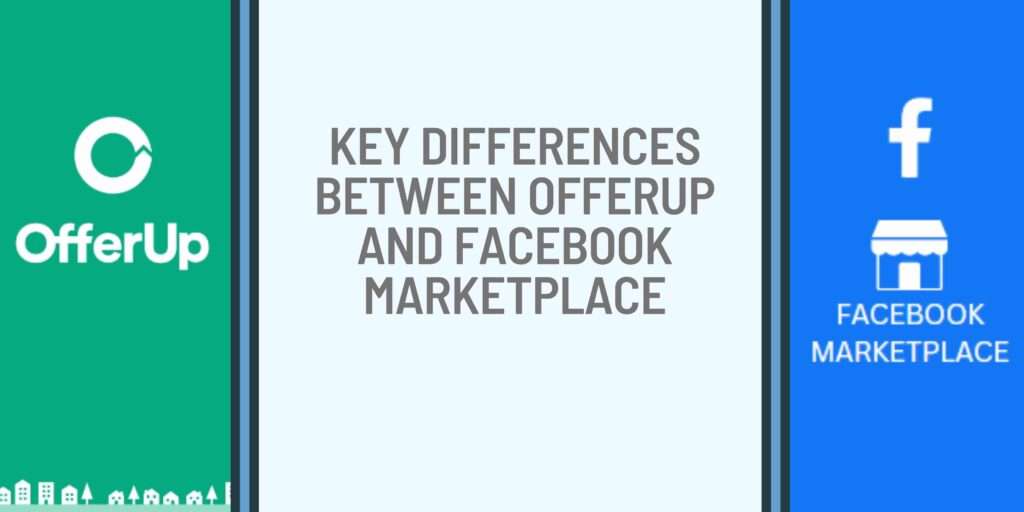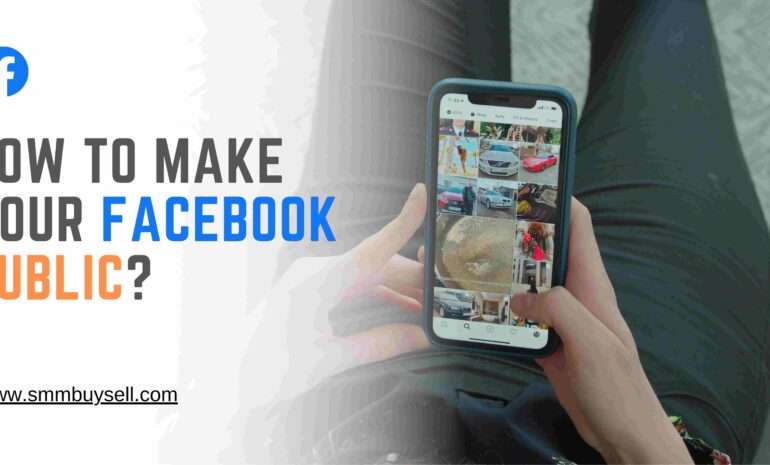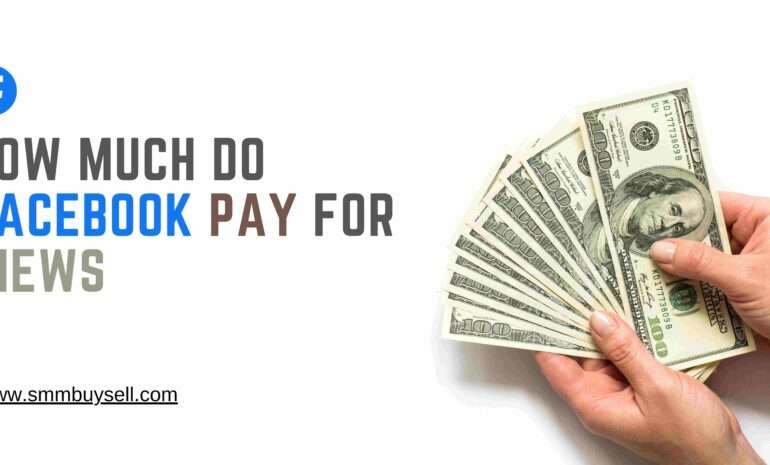According to recent statistics from a study conducted by Statista, the competition between OfferUp and Facebook Marketplace has been intensifying in the online marketplace landscape. With more people turning to these platforms to buy and sell items, understanding the key differences and benefits can be crucial for both buyers and sellers.
In this article, we will delve into the features, user experience, and popularity of OfferUp and Facebook Marketplace to help you decide which platform might best suit your needs.
Whether you’re looking to declutter your home or find unique items at affordable prices, let’s explore the battle between OfferUp and Facebook Marketplace and discover the advantages each offer.
comparison table among OfferUp and Facebook Marketplace
Here’s a comparison table highlighting the key features and differences between OfferUp and Facebook Marketplace:
| Features | OfferUp | Facebook Marketplace |
|---|---|---|
| User Base | Over 80 million downloads | Over 800 million users globally |
| Platform Accessibility | Mobile app (iOS and Android) | Web-based and mobile app (iOS/Android) |
| Geographic Reach | Primarily focuses on the United States | Global presence, available worldwide |
| Selling Format | Local pickup or shipping | Local pickup or shipping |
| Listing Fee | Free | Free |
| Transaction Fee | Variable, depending on payment method | No transaction fees |
| Communication | In-app messaging | Messenger integration for inquiries |
| Social Integration | Limited social media integration | Integrated with Facebook profiles |
| Security Measures | User ratings and reviews | Community reporting and moderation |
| Categories and Filters | Wide range of categories and filters | Broad categories, limited filters |
| Promotions and Boosting | OfferUp Pro subscription for exposure | Paid advertising options are available |
Note: The information provided in this table is based on general knowledge up until September 2021, and there may have been updates or changes since then. It’s always recommended to visit the official websites or platforms for the most up-to-date information.
Key Differences between OfferUp and Facebook Marketplace

1. User Base among OfferUp vs Facebook Marketplace

OfferUp User Base
OfferUp has gained significant traction and boasts an impressive user base. As of the latest available data, OfferUp has accumulated over 80 million downloads, solidifying its position as one of the leading mobile marketplaces in the United States.
The platform’s popularity can be attributed to its user-friendly interface, extensive listing categories, and emphasis on local community interactions. OfferUp’s user base comprises individuals looking to buy and sell a wide range of items, from furniture and electronics to clothing and collectibles.
Facebook Marketplace User Base
Facebook Marketplace, integrated into the world’s largest social media platform, enjoys a massive user base. With over 800 million users globally, Facebook Marketplace provides sellers with a vast audience for their listings.
By leveraging the existing user base of Facebook, the marketplace facilitates easy access to a wide range of potential buyers and sellers. This immense user base makes Facebook Marketplace an attractive platform for individuals seeking to engage in local commerce and connect with their social networks.
2. Platform Accessibility: OfferUp vs Facebook Marketplace

OfferUp Accessibility
OfferUp provides users with multiple options to access their platform. Users can access OfferUp through their mobile app, available for both iOS and Android devices. The app offers a user-friendly interface, allowing individuals to browse, buy, and sell items conveniently on their smartphones or tablets.
Additionally, OfferUp also has a website version, accessible through web browsers, enabling users to access the platform on their desktop or laptop computers. The availability of both mobile and web options ensures that users can access OfferUp regardless of their preferred device.
Facebook Marketplace Accessibility
Facebook Marketplace, as the name suggests, is integrated into the Facebook platform. This integration makes it easily accessible to the vast user base of Facebook. To access Facebook Marketplace, users simply need to have a Facebook account.
Once logged in, they can access the Marketplace tab on the Facebook website or through the Facebook mobile app. This integration allows users to seamlessly switch between browsing their newsfeed and exploring the items available for sale on the Marketplace.
3. Geographic Reach among OfferUp vs Facebook Marketplace

OfferUp
OfferUp has established a significant presence in the United States, primarily targeting local communities within the country. While it originated in the Seattle area, it has expanded nationwide, making it accessible to users across all states.
The platform’s focus on local transactions makes it particularly appealing for users seeking nearby buyers or sellers. However, its reach outside the United States may be limited compared to Facebook Marketplace.
Facebook Marketplace
Facebook Marketplace, with its global user base of over 800 million people, offers a substantially broader geographic reach compared to OfferUp. Available in multiple countries around the world, it enables users to buy and sell items in their local communities and beyond.
Facebook’s extensive international presence allows users to connect with potential buyers and sellers on a global scale, making it an attractive option for individuals looking for broader market opportunities.
4. Selling Format: OfferUp vs. Facebook Marketplace

OfferUp
OfferUp provides users with a straightforward selling format that emphasizes simplicity and ease of use. The platform allows sellers to create listings by providing detailed descriptions, pricing information, and uploading relevant photos.
Sellers can choose to offer their items for local pickup or enable shipping options for buyers outside their immediate area.
Local Pickup
OfferUp encourages local transactions by prominently featuring nearby listings to connect buyers and sellers in the same geographic region.
This emphasis on local pickup fosters a sense of community and convenience, as buyers can easily meet sellers to inspect and collect their purchased items.
Shipping Options
In addition to local pickup, OfferUp also offers shipping options, allowing sellers to expand their potential customer base beyond their immediate area.
Sellers can specify shipping costs, packaging requirements, and estimated delivery times, making it convenient for buyers who prefer items to be shipped directly to their doorstep.
Facebook Marketplace
Facebook Marketplace leverages the vast user base of the social media platform to facilitate buying and selling activities. The selling format on Facebook Marketplace is integrated seamlessly into the Facebook platform, making it easily accessible to users.
Listing Creation
Creating a listing on Facebook Marketplace is a user-friendly process. Sellers can upload photos, provide a description, set a price, and select relevant categories to ensure their items are easily discoverable. The integration with Facebook profiles allows sellers to add credibility and transparency to their listings.
Local Interaction
Facebook Marketplace encourages local interaction between buyers and sellers. Listings are shown to users based on their location, enabling them to find items available in their area. This local focus promotes face-to-face transactions and fosters a sense of trust within the community.
Communication
Communication between buyers and sellers on Facebook Marketplace occurs through the integration of Messenger, Facebook’s messaging platform. This streamlined communication allows for easy negotiation, exchange of additional information, and finalizing transaction details.
5. Listing Fee Comparison: OfferUp vs Facebook Marketplace

OfferUp Listing Fee
OfferUp, as of my knowledge cutoff in September 2021, does not charge any listing fees for standard users. Sellers can post their items for free, reaching potential buyers in their local area without incurring any upfront costs.
However, it’s important to note that OfferUp offers optional paid features, such as promoted listings, that allow sellers to boost the visibility of their items for a fee.
Facebook Marketplace Listing Fee
Facebook Marketplace, similar to OfferUp, does not impose any listing fees for individual sellers. Users can list their items without incurring any direct charges from Facebook. The platform aims to provide a free and accessible marketplace for individuals to buy and sell items within their local communities.
6. Transaction Fee Comparison: OfferUp vs. Facebook Marketplace

OfferUp Transaction Fees
When it comes to transaction fees, OfferUp adopts a straightforward approach. As of my knowledge cutoff in September 2021, OfferUp does not charge any listing fees or transaction fees for standard transactions conducted through the platform.
Sellers are allowed to post their listings and connect with potential buyers without incurring any additional costs directly imposed by OfferUp. However, it’s important to note that OfferUp may offer optional paid services, such as promoted listings or advertising, which may involve additional fees for sellers looking to boost their visibility.
Facebook Marketplace Transaction Fees
Facebook Marketplace, similar to OfferUp, does not charge any fees for creating listings or facilitating transactions on its platform. Sellers can list their items for sale and communicate with buyers without incurring any direct transaction fees imposed by Facebook.
However, it’s worth mentioning that Facebook does provide certain advertising options for businesses and sellers to promote their listings to a wider audience. These promotional features may involve additional costs, depending on the chosen advertising package.
7. Communication Among OfferUp vs. Facebook Marketplace

In-App Messaging on OfferUp
OfferUp offers a convenient and user-friendly in-app messaging system that allows buyers and sellers to communicate directly within the platform. This feature enables smooth and seamless communication, eliminating the need to share personal contact information until both parties are ready to proceed with the transaction.
Users can ask questions, negotiate prices, discuss item details, and arrange pickup or shipping options all within the OfferUp messaging system. This ensures privacy and security while maintaining a streamlined conversation flow.
Messenger Integration on Facebook Marketplace
Facebook Marketplace, being a part of the larger Facebook ecosystem, leverages the popular Messenger platform for communication between buyers and sellers. When a user is interested in an item on Facebook Marketplace, they can initiate a conversation through Messenger with the seller.
This integration allows for easy communication as users can seamlessly switch between Facebook Marketplace and Messenger. However, it’s worth noting that using Messenger means that the conversation is linked to the user’s Facebook
8. Social Integration between OfferUp vs Facebook

OfferUp’s Social Integration
OfferUp places a strong emphasis on fostering local community interactions. While it is primarily a standalone marketplace, it incorporates social elements within its platform. Users can create profiles, add profile pictures, and provide information about themselves. This allows buyers and sellers to have more transparency and trust during transactions.
OfferUp also includes an in-app messaging system that enables users to communicate with each other conveniently. This feature facilitates negotiation, coordination, and addressing any questions or concerns that arise during the buying and selling process.
Facebook Marketplace’s Social Integration
Facebook Marketplace takes advantage of its massive user base and leverages existing social connections. As an integrated feature within Facebook, it benefits from users’ established network of friends, family, and acquaintances. When a user lists an item for sale or expresses interest in a listing, it can be seen by their Facebook friends.
This social aspect provides a layer of familiarity and trust, as buyers and sellers can view each other’s profiles, mutual connections, and shared interests. Facebook Messenger integration further enables seamless communication between parties, allowing for quick negotiations and coordination.
9. Security Measures: OfferUp vs. Facebook Marketplace

OfferUp
1. User Ratings and Profiles: OfferUp provides a system where users can rate and review each other based on their buying or selling experiences. This feature allows users to assess the credibility and reliability of potential buyers or sellers before engaging in a transaction.
2. Verified Identities: OfferUp offers a feature called TruYou, which allows users to verify their identities using their phone numbers and social media accounts. This verification process adds an extra layer of trust and security by confirming the authenticity of user profiles.
3. In-App Messaging: To facilitate communication between buyers and sellers, OfferUp provides an in-app messaging system. This feature enables users to discuss the details of a transaction securely within the platform, minimizing the need for sharing personal contact information.
Facebook Marketplace
1. User Profiles and Reporting Functionality: Facebook Marketplace utilizes users’ existing Facebook profiles, providing a level of transparency and accountability. Users can view the public profiles of potential buyers or sellers, allowing them to assess their credibility. Facebook also offers a reporting feature, empowering users to flag and report suspicious or fraudulent listings.
2. Safety Tips and Guidelines: Facebook Marketplace provides users with safety tips and guidelines to promote secure transactions. These guidelines offer valuable advice on meeting in public places, conducting transactions during daylight hours, and being cautious of potential scams or counterfeit items.
3. Messenger Integration: As Facebook Marketplace is integrated with Facebook’s Messenger, users can communicate through the secure messaging platform. This integration allows for real-time conversations while maintaining a level of anonymity, as users do not need to share personal contact information.
10. Categories and Filters: OfferUp vs. Facebook Marketplace

Categories on OfferUp
OfferUp provides a wide range of categories and subcategories to help users easily navigate and search for the items they are interested in. From electronics and home appliances to clothing and accessories, OfferUp offers a diverse selection of categories tailored to different types of products.
This extensive categorization enables users to find specific items within their desired category, improving the overall browsing experience.
Filters on OfferUp
In addition to categories, OfferUp also offers a variety of filters that allow users to refine their search results further. Users can apply filters such as price range, condition (new or used), distance, and more to narrow down their search and find exactly what they’re looking for.
These filters help users save time by displaying relevant listings that meet their specific criteria, making it easier to find the perfect item.
Categories on Facebook Marketplace
Similar to OfferUp, Facebook Marketplace offers a broad range of categories spanning various product types. Users can explore categories such as vehicles, home goods, electronics, clothing, and many others.
The categories on Facebook Marketplace are designed to cover a wide range of consumer needs, catering to diverse interests and preferences.
Filters on Facebook Marketplace
Facebook Marketplace also provides users with the option to apply filters to their searches. While the available filters may vary slightly based on location and item category, users typically have the ability to filter results by location, category, price range, and item condition.
These filters enable users to refine their search to specific locations or item characteristics, making it easier to find relevant listings.
11. Promotions and Boosting: OfferUp vs Facebook Marketplace

OfferUp: Promotions and Boosting
Promotion Options: OfferUp offer sellers various promotion options to increase the visibility of their listings. Sellers can opt for features like “Bump” and “Promote” to give their items a boost.
Bump allows sellers to move their listing back to the top of search results, increasing its exposure to potential buyers. Promote, on the other hand, enables sellers to reach a larger audience by highlighting their listings with increased visibility within the app.
Boosting Listings: In addition to the promotion options, OfferUp provides sellers with the ability to boost their listings for increased exposure. By utilizing the Boost feature, sellers can amplify the visibility of their items, ensuring they appear prominently in relevant search results. This increased visibility can significantly enhance the chances of attracting potential buyers.
Facebook Marketplace: Promotions and Boosting
Promotion Options: Facebook Marketplace offers limited promotion options compared to OfferUp. However, sellers can still leverage the platform’s built-in features to enhance the visibility of their listings.
Sellers can utilize features like adding detailed descriptions, high-quality images, and accurate categorization to optimize their listings and attract more potential buyers.
Boosting Listings: Unlike OfferUp, Facebook Marketplace does not provide a specific boosting feature. However, sellers can indirectly boost their listings by sharing them on their personal Facebook profiles or in relevant groups.
Leveraging their social connections, sellers can generate more exposure for their listings and reach a wider audience through organic sharing and engagement.
In conclusion, OfferUp and Facebook Marketplace are both prominent online marketplaces, each with its own strengths and unique features. OfferUp excels in terms of promotions and boosting capabilities, offering sellers direct options such as “Bump” and “Promote” features, along with the ability to boost listings.
On the other hand, Facebook Marketplace leverages its vast user base and social connections for organic sharing and engagement. When choosing between the two platforms, sellers should consider their specific needs and preferences to determine which marketplace aligns best with their selling objectives.


